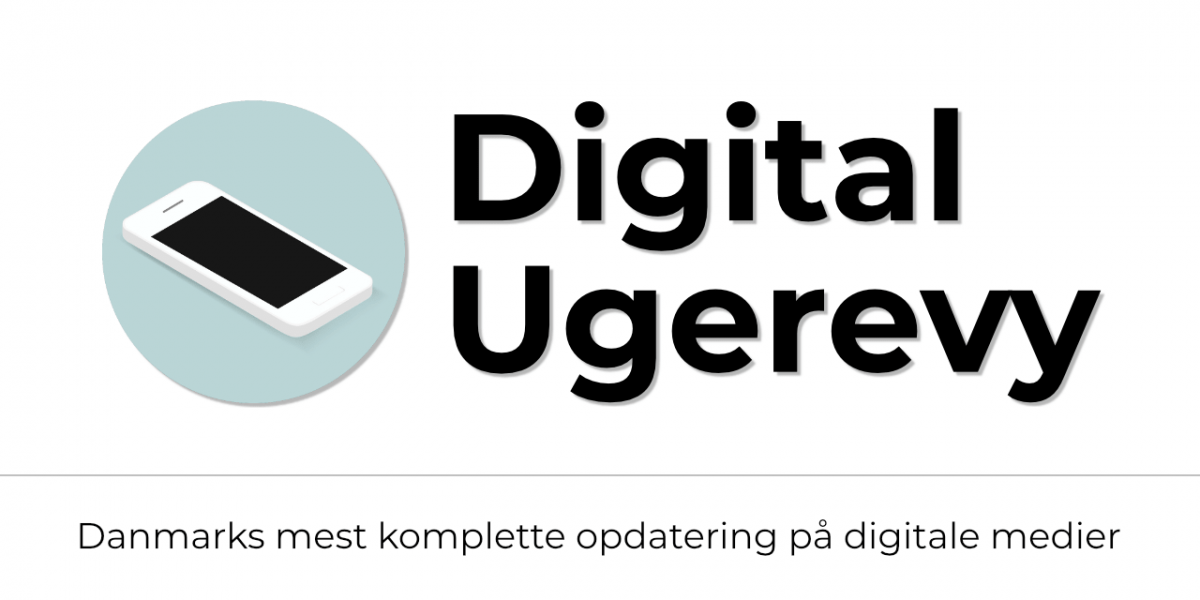Digitale medier i uge 27 (2019)

Her har du Danmarks mest komplette opdatering på sociale medier og digital udvikling i mediebranchen. Du bliver holdt opdateret og sparer masser af tid.
⏱️ Har du for travlt til at læse?
Prøv et foredrag i stedet
(Så er du med til at holde Ugerevyen gratis og relevant)
↓
[toc]
Ugerevyen holder sommerferie
Tak fordi, du læser med. Denne opsamling er den sidste inden Digital Ugerevy holder sommerpause og vender tilbage i uge 31 eller 32.
? Sociale medier

Her finder du historier om eller fra de store sociale platforme, der har en enorm rolle at spille i kontakten mellem udgiver/afsender og modtager.
Facebook:
Facebooks problem med private grupper
ProPublica kunne afsløre, at amerikanske grænsevagter håner migranter i en lukket Facebook-gruppe. Politiken har også skrevet om det, hvis du vil læse om det på dansk.
Mathew Ingram fra Columbia Journalism Review har samlet op og skriver om "Facebook and the private group problem":
"In response to the ProPublica story, a spokesman for the CBP said that the agency has initiated an investigation into the 'disturbing social media activity,' and Border Patrol Chief Carla Provost said the posts are 'completely inappropriate and contrary to the honor and integrity I see—and expect—from our agents.'"
Facebook overvejer "indholdsbestyrelse"
Social Media Today:
"The Social Network outlined its plans for a new, independent content review board which would provide an updated framework for platform posting regulations, and a new way for users to appeal those decisions. "
Facebook-nedbrud gav AI-indsigt
Det beviser bare, at der er intet, der er så galt, at det ikke er godt for noget.
Version2:
"I flere timer kunne brugerne ikke uploade eller se billeder eller video på de sociale medier, men til gengæld blev de mødt med en autogenereret beskrivelse af, hvad der kunne findes på billederne i brugernes feeds."
Facebooks fokus på "white supremacy" er for snævert
TechCrunch:
"While Facebook has made changes in some of these areas — Facebook banned white supremacy in March — auditors say Facebook’s policy is still “too narrow.” That’s because it solely prohibits explicit praise, support or representation of the terms “white nationalism” or “white separatism,” but does not technically prohibit references to those terms and ideologies."
Tysk hatespeech-bøde til Facebook
AP News:
"German authorities said Tuesday that they have imposed a 2 million-euro ($2.3 million) fine on Facebook under a law designed to combat hate speech."
Facebook og YouTube flyder med falske cancer-kure
The Wall Street Journal:
"Facebook Inc. and YouTube are being flooded with scientifically dubious and potentially harmful information about alternative cancer treatments, which sometimes gets viewed millions of times, a Wall Street Journal examination found."
Facebook News Feed changes downrank misleading health info and dangerous "cures"
TechCrunch
Facebook Bravely Limits Nonsense Health 'Cures' and Misinformation to Just Some People
Gizmodo
De andre:
Instagram arbejder på stop-motion-værktøj
Social Media Today:
"In the end, you have a cool looking little video clip — you could use it to capture your products and show every angle, or get even more creative with shots of a person, simulating movement, or action figures playing out a scene."
Twitter opdaterer søgeresultater
Social Media Today:
"The idea, as noted, is that by showing you more information about your search, it'll better guide you towards the results you're after, and help you better understand whether this profile is worth following, in order to get you to tap through for more info."
Sådan ranker LinkedIn opslag
Marketing Land:
"LinkedIn’s Senior Director of Product Management Pete Davies shared insights this week on the changes LinkedIn has made to its news feed algorithm over the last year and a half."
LinkedIn kigger på flere retargeting-muligheder
Digiday:
"LinkedIn is planning to introduce the ability for advertisers to retarget LinkedIn users who engage with their LinkedIn ads, according to a marketer with direct knowledge of the matter. Currently, LinkedIn advertisers can only see clicks that come from certain audience groups such as from a particular company."
Inspiration: De her er gode til LinkedIn
Social Media Today:
"There are a select few marketers and brands who have really mastered their LinkedIn strategy, and looking at how these brands approach content on the professional social network may inspire some upgrades to your own LinkedIn strategy."
Tips til din digitale markedsføring
37 Astonishing Email Marketing Stats You Need to Know [Infographic]
Social Media Today
? Digitale tendenser

Her kan du læse nogle af ugens tendenser indenfor medier. Det kan være en ny metode eller tilgang, branchen forsøger at tage til sig.
Har du endelig fået styr på GDPR? Nu kommer PECR
Digiday:
"PECR forms part of the European Union ePrivacy Directive — the law that is currently being updated to become the much-dreaded ePrivacy Regulation which will focus more acutely on curbing cookie use for tracking purposes. PECR covers marketing calls, texts and emails. It also relates to the use of online cookies used for tracking information about people online. "
Stemmestyring er langt fra "det nye mobil"
For eksempel er der tre år efter, det blev muligt at bestille en Uber via Amazons Alexa, kun få hundrede bestillinger om dagen fra den kanal. Det svarer til mindre end 0.002% af det totale antal.
The Information:
"Alexa devices have become popular for playing music and other basic chores, but voice hasn’t become an industry-transforming technology on par with mobile, as many predicted."
Historien om Elon Musks satiremedie
The Verge:
"So when, a year into working together, Bolton heard that Musk was pulling the plug, he knew he had an immense problem. “Making a swift transition from being a billionaire-backed project to an independent media company is...” Bolton trailed off. “You know. You know this industry.”"
Heartbeats fokuserer på podcasts
MediaWatch:
"Nu bliver webradioen lagt graven, da lytterne fortsat foretrækker at lytte til radio via FM-båndet eller på DAB+ frem for internetradio – og det er for dyrt for selskabet at købe sig ind på en radiofrekvens."
Læs mere hos Heartbeats selv.
Så er krigen om video-streaming i gang
Digiday:
"As predicted, years of entertainment giants and tech titans preparing to take on Netflix has led to the opening salvos being discharged — or at least formally announced — in the first half of 2019."
Interview med manden bag ReadWriteWeb
Lyt til et interview med Richard MacManus, der startede ReadWriteWeb som en blog tilbage i 2003 og solgte det i 2011. Du kan også høre om, hvorfor han i dag udgiver et nyhedsbrev.
The Business of Content (podcast):
"These days, nearly every major news organization employs multiple reporters who aggressively cover the tech industry, but a decade ago tech coverage was dominated by blogs like TechCrunch, Mashable, and VentureBeat. Back then, these blogs churned out scoop after scoop, competed for traffic, and sometimes even went to war with each other."
WSJ har 21 personer til at finde "deepfakes"
Digiday:
"The publisher has issued criteria to committee members which help them determine whether the content is fake or not. After each query from a reporter, members write up a report with details of what they learned."
Ohio-avis lukker efter 150 år
100.000 læsere og et lokalmiljø på det dobbelte står nu uden en lokalavis.
Poynter:
"Just last week, The Vindicator newspaper in Youngstown, Ohio celebrated its 150th birthday. There will not be a 151st. The paper announced on Friday that the final edition will be Aug. 31."
? Business

Her kan du læse nogle af ugens historier og tendenser indenfor forretningsudvikling i mediebranchen. Altså det, der handler om at tjene penge.
Er Axel Springer blevet digital på bekostning af journalistikken?
Columbia Journalism Review:
Den tyske mediekoncern Axel Springer har bygget en imponerende digital forretning op, inspireret af kulturen fra Silicon Valley.
Men væksten er ikke sket på journalistiske produkter — i stedet er pengene tjent på forretningsmodeller, såsom rubrikmarkedet, der tidligere hang sammen med journalistikken, men nu er adskilt fra indholdet.
Det placerer Axel Springer et sted, hvor de skal vise, at de også kan lave forretning på journalistikken.
CJR har skrevet en lang artikel om koncernens historie, dens udvikling og udfordringer — samt hvorfor det er vigtigt for dem at holde fast i journalistikken.
Tag dig tid til at læse artiklen, den er det hele værd.
Jeg har perspektiveret lidt på min blog, Medieblogger:
Apple kæmper med News+
What's New In Publishing:
"Apple has allegedly acknowledged that there is confusion among users about the difference between free articles in Apple News, which has existed as an aggregator since 2015, and the new paid content in Apple News+."
Hvis du er nysgerrig på Apple News+, kan du læse en analyse, jeg skrev hos Journalisten.
Mediebureauer vil have mere ud af mediernes indhold
Digiday:
"Today, media agencies want to pick up signals that delve beyond the individual site and page information or categories of sites, into the tone in which an article is written in, the words themselves and images on a page, or perhaps even a specific paragraph."
Det risikerer at introducere en problematik, som jeg skrev et blogindlæg om hos Medietrends i 2017:
MediaWatch sætter fokus på det danske annoncemarked
MediaWatch:
"I en ny artikelserie tager MediaWatch temperaturen på dagsformen på det digitale annoncemarked – særligt markedet for bannerannoncer. I denne første artikel sætter vi scenen og beskriver den aktuelle udvikling og udfordringerne. "
Sport + data: Sådan vil The Economist nå flere
Journalism.co.uk:
"Behind the initiative is data editor Dan Rosenheck and his passion for sports which he also channels to The Economist’s sports blog Game theory. Another advantage of covering sports is that it provides readily available, clean and comprehensive data."
...og sådan mindskede de churn med nyhedsbreve
Digiday:
"Ultimately, the goal is to drive new subscriptions or keep current subscribers engaged. Based on reader research, The Economist learned one of the main reasons people churn is because they find the amount of content to read overwhelming."
Undersøgelse: Få medier personaliserer
Cxense har lavet en undersøgelse blandt amerikanske, britiske og "mainland"-europæiske medier, som du kan læse som PDF.
Der er en række konklusioner, der ikke bør overraske, og du kan læse, at det er (måske overraskende) få medier/redaktioner, der bruger personalisering:
Journalism.co.uk:
"Cxense’s 'Don’t stop the press' survey shows that 46 per cent of reporters have a negative outlook for the future of the journalism industry, with less than ten per cent believing that working in the industry gives them job security.
However, it also found that only one in five journalists said their newsrooms use data to deliver personalised content to their readers."
Læs også:
Newsonomics: The New York Times puts personalization front and center — just For You
Nieman Lab
Vækst i annonceomsætning på sociale medier halveret
MediaWatch:
"De sociale medieres annonceomsætning voksede mere end nogen anden kategori i første kvartal, men væksten var markant lavere end sidste år, viser rapport fra analyseinstituttet Warc."
? Udvikling og tech

Her får du et kig på nogle af ugens historier indenfor den digitale udvikling og teknologi, der enten direkte eller indirekte kan have betydning for medier/udgivere.
Californien vedtager bot-lov
The New Yorker:
"On July 1st, California became the first state in the nation to try to reduce the power of bots by requiring that they reveal their “artificial identity” when they are used to sell a product or influence a voter. Violators could face fines under state statutes related to unfair competition. Just as pharmaceutical companies must disclose that the happy people who say a new drug has miraculously improved their lives are paid actors, bots in California—or rather, the people who deploy them—will have to level with their audience."
UK-ansigtsgenkendelse tager fejl 80% af gangene
MIT Technology Review:
"The first independent evaluation of the Metropolitan police’s use of face recognition systems warned it is “highly possible" it would be ruled unlawful if challenged in court."
Kongressen er bekymret over Facebook-valuta
TV 2:
"Udvalget skriver desuden, at Libra kan udfordre den amerikanske pengepolitik og den amerikanske dollar. Det kan være skidt nyt for hele verdensøkonomien, advarer udvalget.
Derfor beder de nu om tid til at undersøge, hvad konsekvenserne af Libra kan blive."
Google vil gøre robots.txt til standard
VentureBeat:
"Google wants to turn the decades-old Robots Exclusion Protocol (REP) into an official internet standard — and it’s making its own robots.txt parser open source as part of the push."
Kan kunstig intelligens klæde folk af?
MIT Technology Review:
"Now the latest deepfake experiment—an app called DeepNude that “undressed” photos of women—is playing out those nightmares. First reported by Vice, it used generative adversarial networks, or GANs, to swap the women’s clothes for highly realistic nude bodies. The article quickly inspired a viral backlash, and the app’s creator shut it down."

